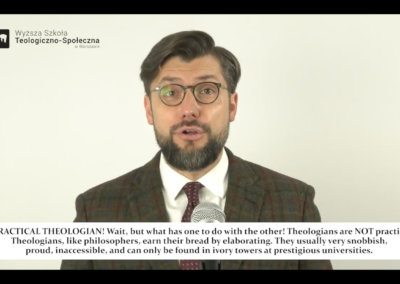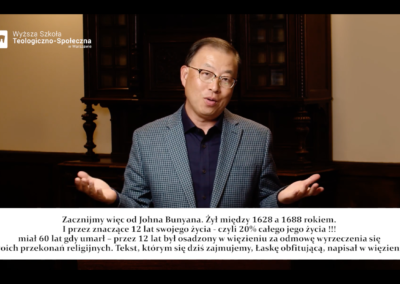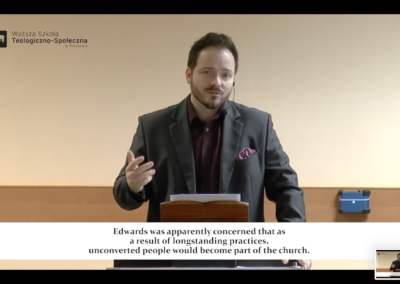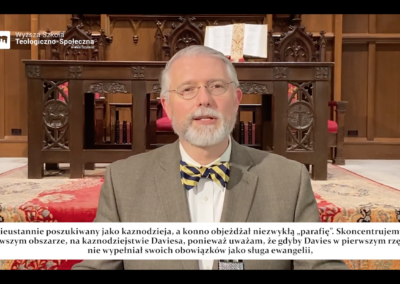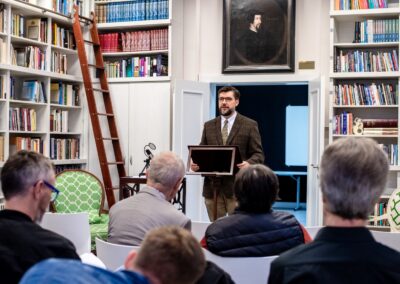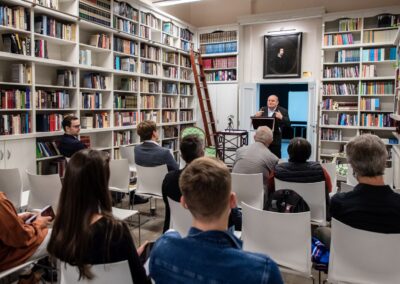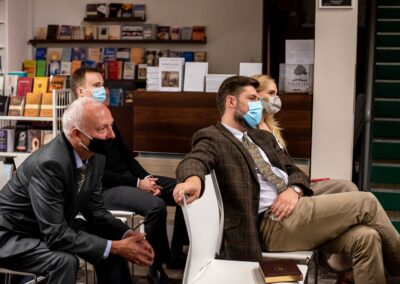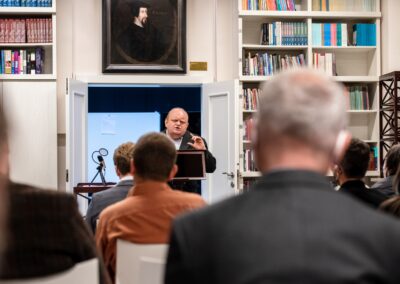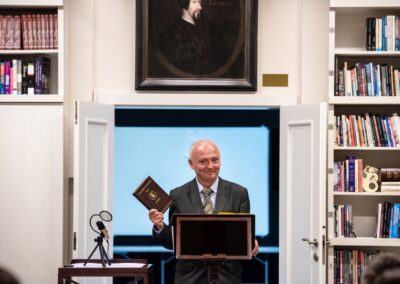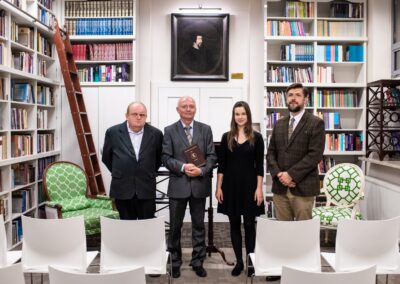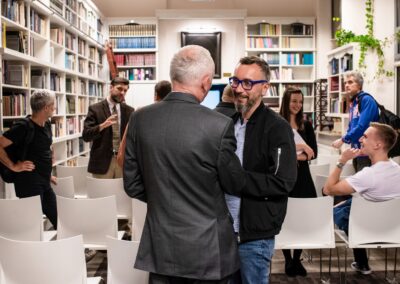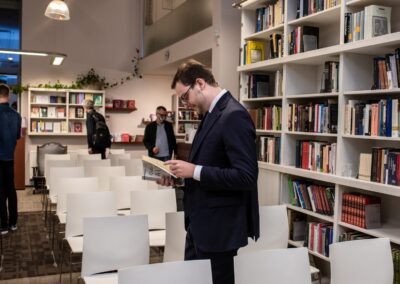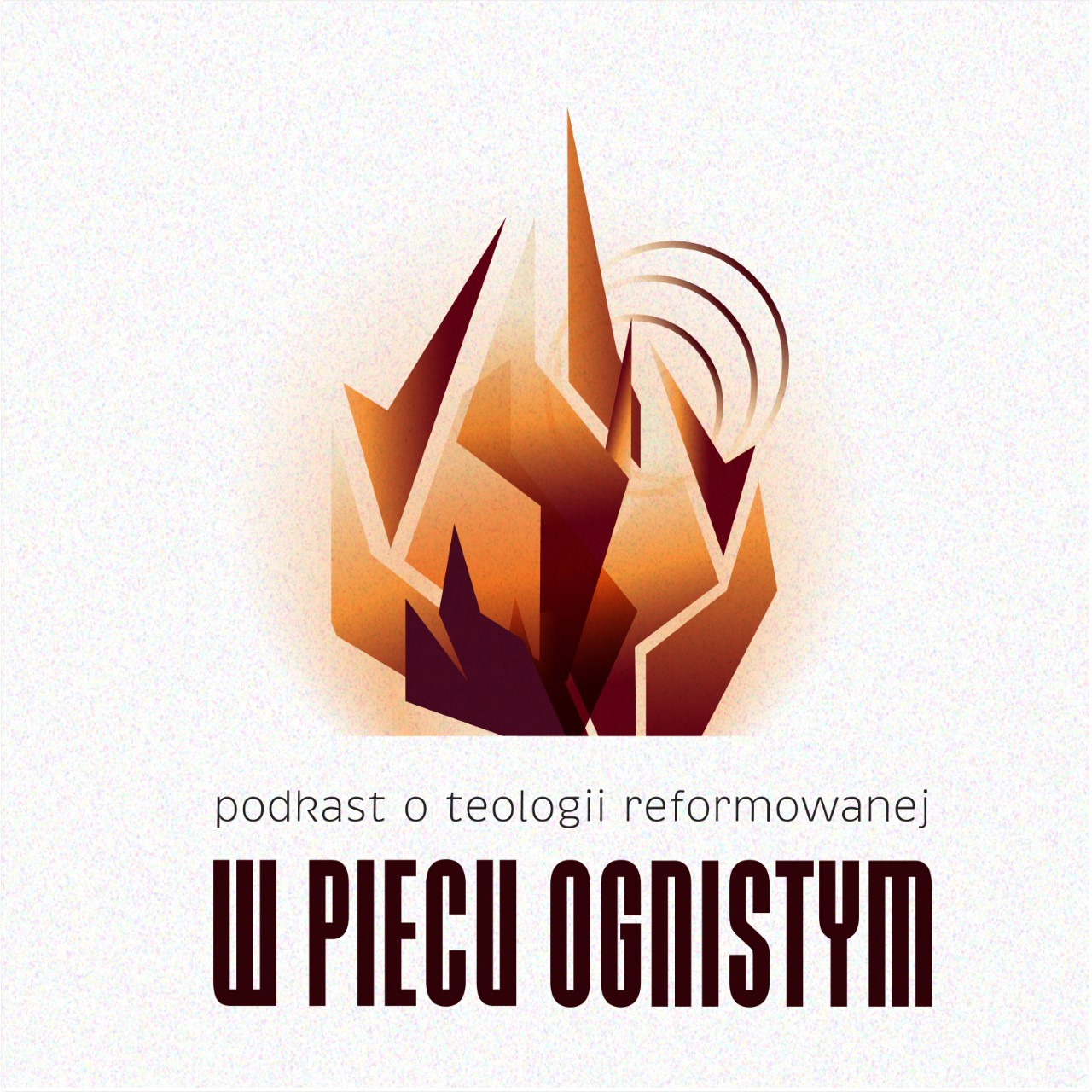
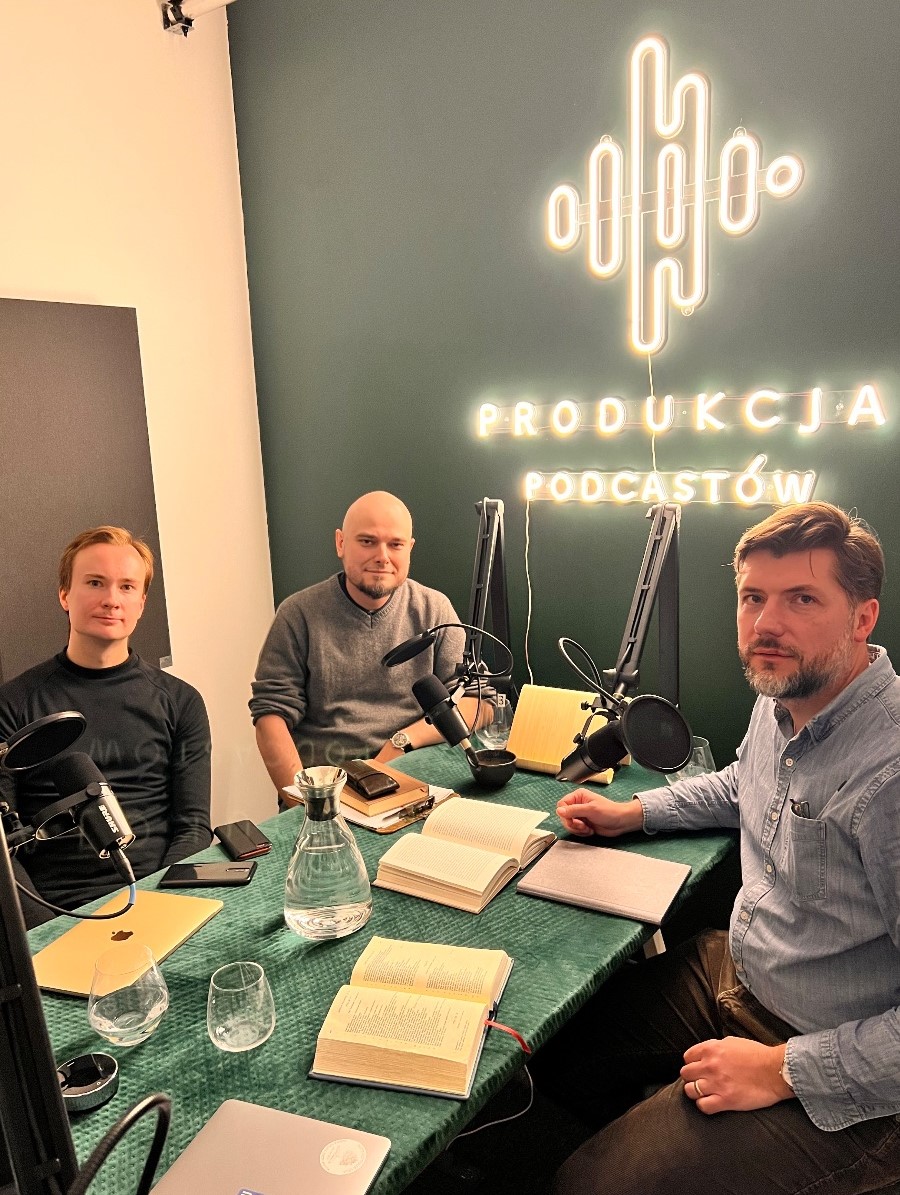
Gospodarze programu w studio nagraniowym
Podkast “W piecu ognistym”
Słuchaj na:
Witamy w podcaście o teologii ewangelicko-reformowanej „W piecu ognistym”, gdzie podążamy śladami biblijnych bohaterów Szadracha, Meszacha i Abednego, którzy pomimo niewoli babilońskiej pozostali wierni Bogu Izraela i nie zaparli się go w kulturze, która się Mu opierała. Z poszanowaniem polskiej tradycji i historii szukamy miejsca dla chrześcijaństwa wiernego Słowu Bożemu i wyznaniom wiary przyjętym przez kościoły reformowane w Rzeczypospolitej Obojga Narodów XVI wieku, a dzisiaj prawie zapomnianym lub źle zrozumianym.
Rozpoczynamy od serii dwunastu odcinków poświęconych takim zagadnieniom jak Pismo Święte, Bóg, czy rola wiary i uczynków w zbawieniu. W naszych dyskusjach będziemy odwoływać się do Westminsterskiego wyznanie wiary z 1646 roku, napisanego przez ponad stu najwybitniejszych brytyjskich teologów protestanckich ery nowożytnej, które do dzisiaj uznawane jest za jeden z najważniejszych wyznaczników wiary dla prezbiterian i ewangelików reformowanych na całym świecie.
Kolejne odcinki będą publikowane co dwa tygodnie.
Gospodarzami programu są:
dr Dariusz Bryćko, prezes Instytutu Tolle Lege i założyciel warszawskiego zboru Litewskiego Kościoła Ewangelicko-Reformowanego (Jednoty Litewskiej)
dr Michał Kuź, wykładowca nauk politycznych na Uczelni Łazarskiego
Mateusz Kupiec, dyrektor wydawnictwa Instytutu Tolle Lege oraz autor polskiego przekładu Westminsterskiego wyznania wiary
Nazwa i logo podkastu są inspirowane historią Szadracha, Meszacha, i Abednego z Księgi Daniela, którzy pozostali wierni Bogu pomimo ogromnej presji społecznej. Obraz ognia odpowiada także czystości i mocy Słowa Bożego, jak w Psalmie 12,7: „Słowa Pańskie są słowami czystymi, srebrem przetopionym [w piecu ognistym], odłączonym od ziemi, siedemkroć oczyszczonym”.
Recent Events
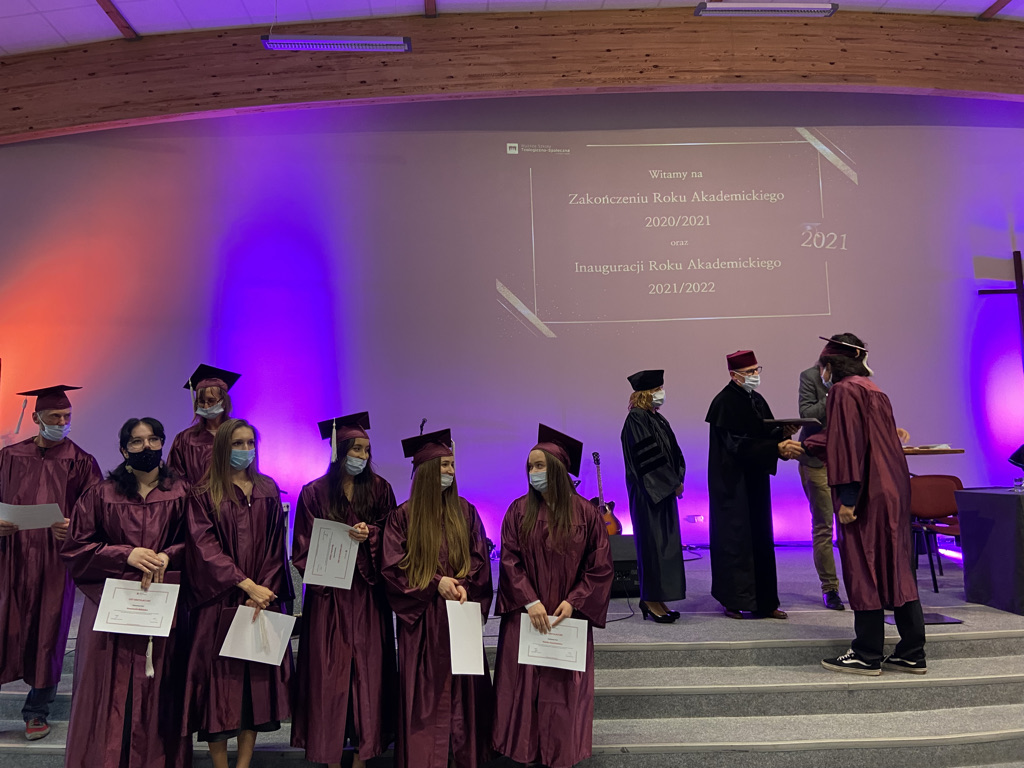
Inauguration of the Academic Year
On October 2 we inaugurated the academic year at the College of Theology and Social Sciences. Dariusz has just become the Director of English Theological Studies and is developing the Reformed/Presbyterian Theology track, newly created in cooperation with Tolle Lege. Brooke teaches Research & Writing courses.
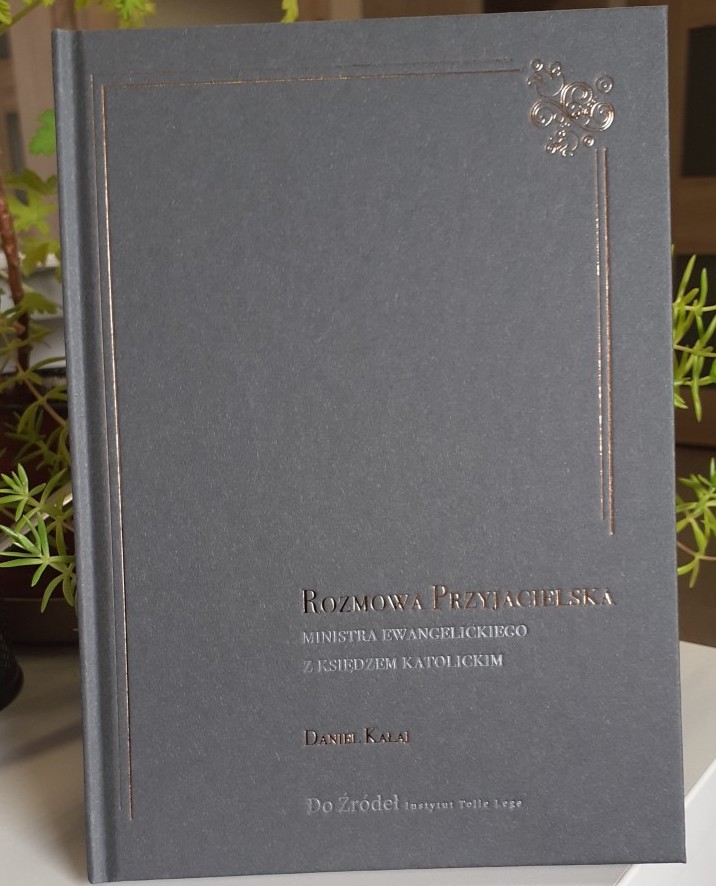
New Publication
On September 30 we got our latest book from the printing house—A Friendly Conversation Between an Evangelical Minister and a Roman Catholic Priest. It is a Reformation-era work by Polish-Lithuanian minister Daniel Kałaj, now republished for a modern audience.
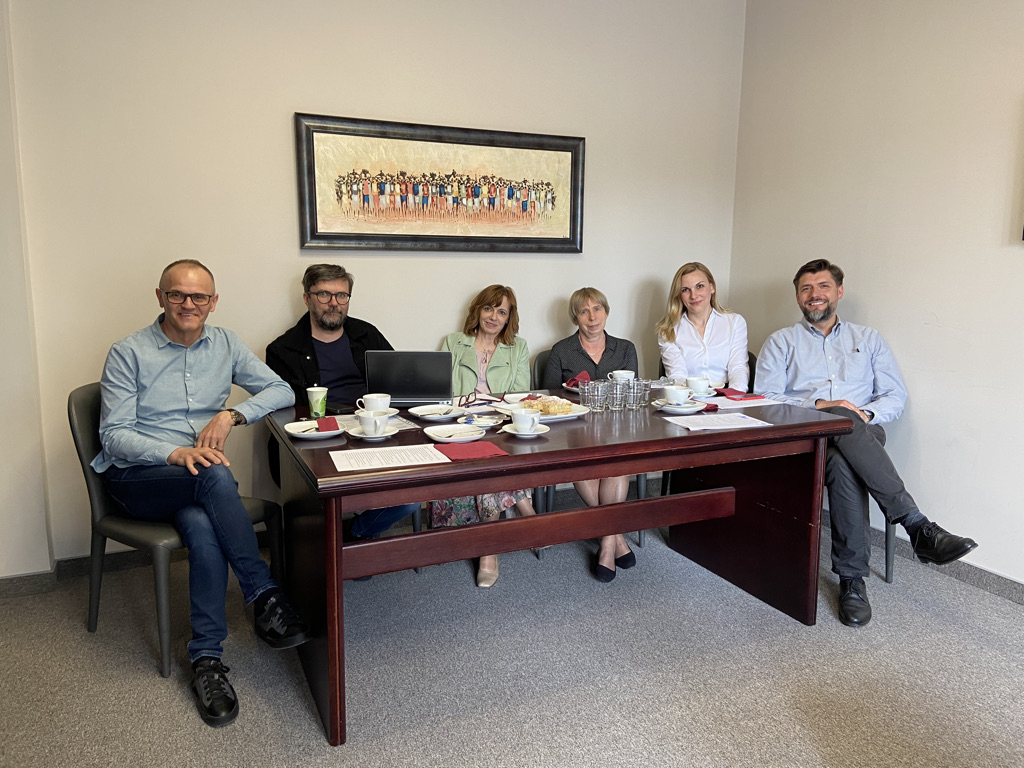
Development of the Reformed/Presbyterian Track at the College
In partnership with The College of Theology and Social Sciences in Warsaw, Dariusz was asked to develop a new Reformed/Presbyterian Theology track and serve as Director of English Theological Studies. Brooke will teach Research & Writing courses.
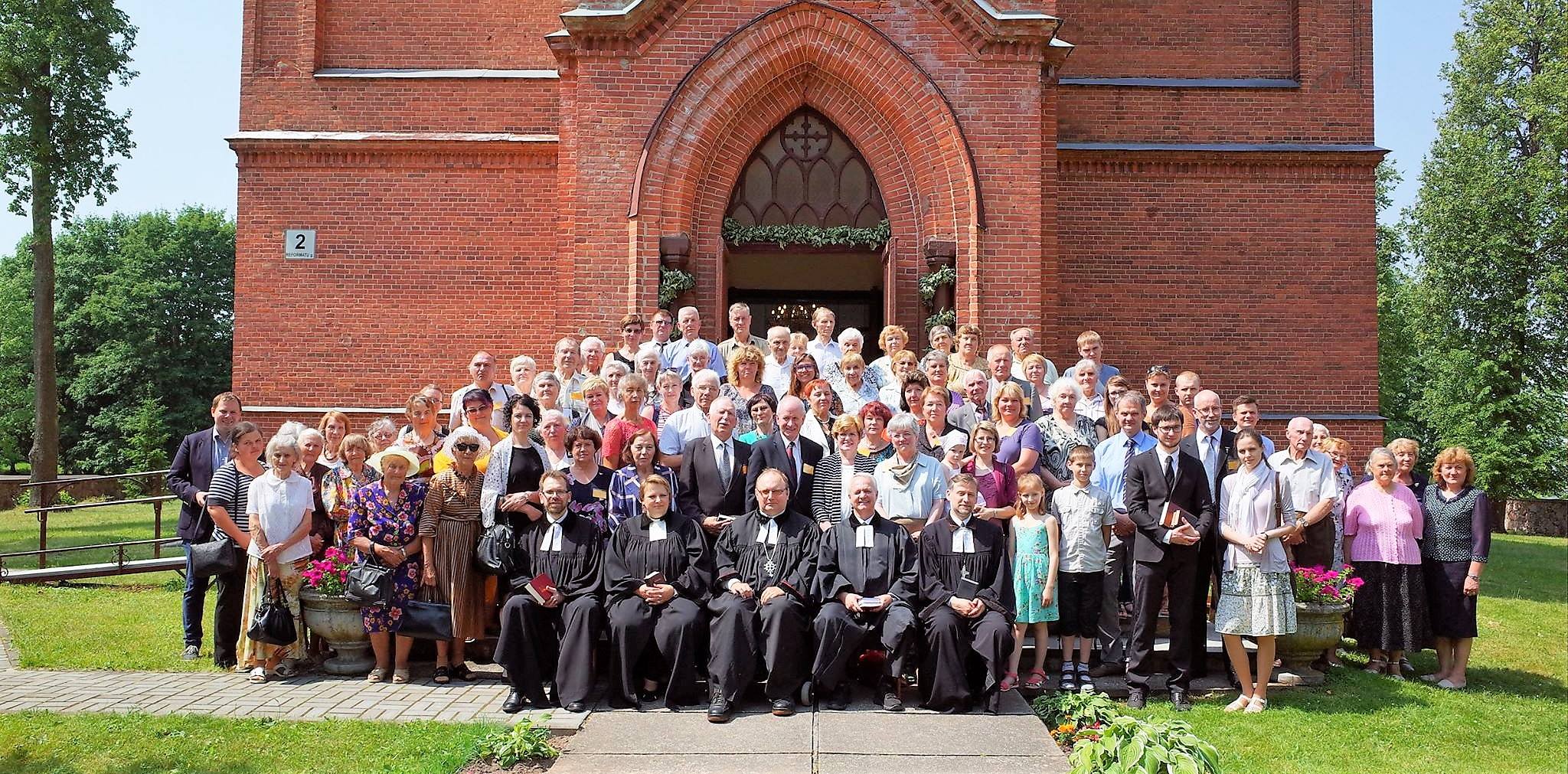
Official welcoming of our mission congregation
At the June Synod of the Evangelical Reformed Church of Lithuania, our church plant core group was welcomed as an official mission congregation.
Recent Events
A Conference on Puritans
On November 28 we hosted a conference on Puritans. The speakers were Rev. Dr. Dariusz Bryćko (Instytut Tolle Lege), Dr. Paul C. H. Lim (Vanderbilt Divinity School), Rev. Dr. Kamil Hałambiec (Wyższa Szkoła Teologiczno-Społeczna), and Rev. Dr. Bob Fuller (First Presbyterian Church of San Antonio, TX). Because of the pandemic, all the lectures and the discussion panel were hosted online. More than 100 participants were able to grow in their knowledge of Biblical truth and Puritan piety.
All the lectures are available online for watching.
Calvin’s Institutes Book Promotion
On September 24 we hosted a book promotion for the first-ever translation of Calvin’s Institutes to Polish, published by HORN.
What does Tolle Lege Mean?
Tolle Lege is a Latin phrase meaning “take and read.” It is taken from St. Augustine’s account of his own conversion in his classic work Confessions. While weeping in his garden, overwhelmed by a sense of sin and separation from God, Augustine heard an audible voice, as of a boy or girl chanting in a neighboring house, “Take and read, take and read.” Startled by these words, Augustine interpreted it as a command from God to open the Bible and start reading the first passage he should find. The Apostle Paul’s words in Romans 13:13-14 confronted his most closely held sins – and the moment Augustine received God’s Word he was flooded with indescribable peace. He immediately confessed his faith to others and began a new life in Christ.
© 2022-2023 Fundacja Instytutu Tolle Lege. Wszelkie prawa zastrzeżone.


